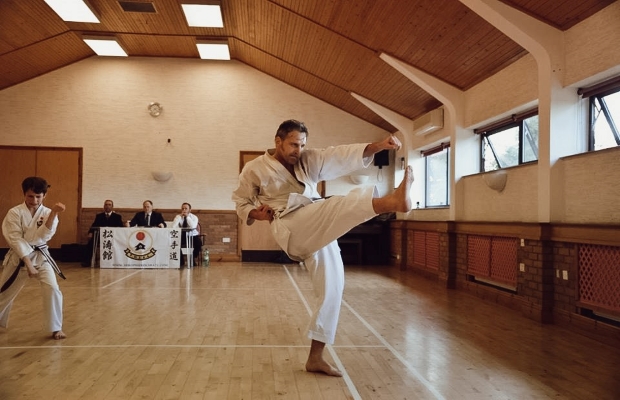How it all started: the initial coronavirus symptoms
“I did karate lessons with my son. We had a lesson on 20 March 2020, three days before lockdown began. One of the others there had just come back from Spain, and after the class he fell ill.
“After that, me, my son and two other people all developed symptoms. I had a dry throat and became really fatigued and found it difficult to concentrate. By the next weekend, I’d completely lost my sense of smell or taste.”
I would have moments where I wasn’t sure if it was anxiety or actual shortness of breath
At that point, tests for Covid-19 were not widely available, so James wasn’t tested, but he feels sure that he had the virus. Although he didn’t need hospital treatment at the time, James continued to feel waves of fatigue and shortness of breath for the next few weeks, and started to experience chest pains.
"I never really got better. It was just that I had moments when I'd think I was ok, which gave me a sense things were improving. Unfortunately I would then relapse and things actually became worse.
“I would have moments where I wasn’t sure if it was anxiety or actual shortness of breath. Earlier on in the pandemic, it wasn’t clear that some people were having these symptoms for a long time, so the doctors I saw thought it was anxiety rather than something physical.”
We’re here for you with information and support around coronavirus
Our fortnightly Heart Matters newsletter includes the latest updates about coronavirus when you have a heart condition, as well as support for healthy eating, staying active and your emotional wellbeing.
I’d like to sign up
Long Covid: fatigue, chest pain and difficulty breathing
After having a few of these episodes, James went to A&E. By then it was the middle of May, around six weeks after he originally fell ill. “They did various tests on me, and discovered that I had pleurisy (inflammation of the layer between your lungs and your rib cage) on one lung, and a mild infection in the other, and there was inflammation around my heart. I was prescribed steroids for the inflammation, which made me feel better for that week, but my symptoms continued.”
James didn’t need to stay in hospital, though he has since been back and forth to hospital for more tests. He is currently waiting to see a cardiologist about his continuing chest pains. Even eight months on from his initial symptoms, he is still struggling with physical fatigue and breathing difficulties, though he has been able to return to working from home.
“I still have to pace myself. I can do 7,000 steps a day, but any more than that and I know I’ll suffer the next day. When I go for a walk, it takes a long time for my heart to get back to its resting rate. Mentally, I still want to get out and do things, but physically I just can’t.
“Even now, although I think things are improving very gradually, I still get hit with bad days.”

James (right) and his son, before coronavirus struck
The mental health impact of long Covid
Being ill for so long has also taken a toll on James’ mental health.
He says: “It’s overwhelming and frightening when you can’t breathe very well.”
On top of that, he has found that the “up and down” nature of his recovery has been particularly challenging. “It can feel like all hope gets taken away from you. With a normal illness, as soon as you start feeling better, that’s it, you get better. With this, you feel better, then out of the blue you’re back where you were. So the positive feeling gets pulled out from under you, again and again, and that’s really hard to cope with.”
It’s overwhelming and frightening when you can’t breathe very well. It can feel like all hope gets taken away from you
James says he’s found meditation has been one of the biggest things that’s helped him in dealing with the mental impact. “I’ve tried meditation, using the Headspace app. I think it’s really helped. At least for the time you’re doing it, you’re clearing your mind.”
And he says that overall, he feels things are “going in the right direction”. “Now, my worst moments aren’t as bad as the previous worst moments. I just have to be patient.”
Are you suffering from long Covid?
